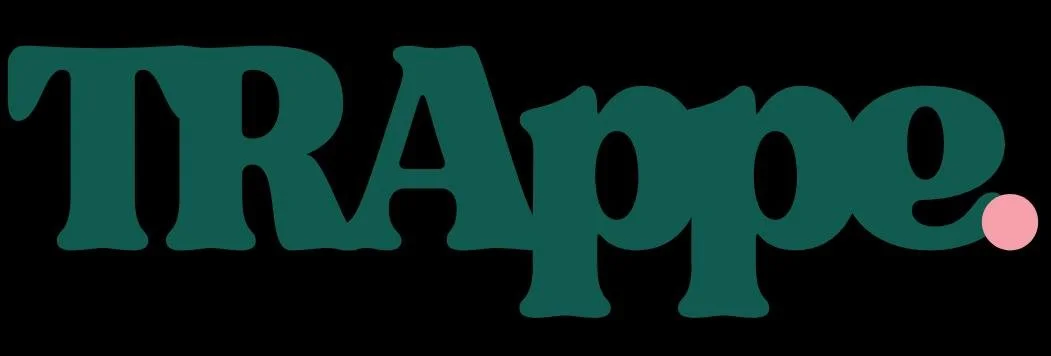What does “Travel” mean for Gabby?
Gabby is the founder of TRAppe. TRAppe helps travellers discover curated, lifestyle-forward travel experiences that are kind to the planet and good to its people ✌🏻
When we use language, we often mean different things because of different life experiences and life stories.
Darryl Lim 00:00
Yeah. So when you see the word TRAVEL, what do you think about? What are your associations and yeah, what does it mean for you?
Gabby 00:09
Okay, I think for me travel. I mean, obviously everybody travels for different reasons, but for me, my number one reason to travel is to open my mind and to help me become more open minded as a person, and also for personal growth, because I think when you travel, you're intentionally putting yourself in a very uncomfortable position, because obviously you are in a different country, it might be a different language, so you kind of force you to be outside of your comfort zone. And for me, the fastest way for me to grow as a person is to intentionally put myself outside of my comfort zone. So I guess that's sort of like the growth side to travel. And then obviously there's like the curiosity, curiosity side to travel as well. I've always been naturally curious, and I think I've always been very curious about the differences between people and the differences between culture and history and heritage. And I think one of the best ways to really discover another culture is to actually travel, because you can read, and you can read all about another culture. You can watch all the television shows and all the movies. But there's nothing compared to being on the ground and experience it for yourself, and also meeting the people face to face and having that human interaction. So I would say travel for me means growth, and travel for me means discovery and having a better understanding of people who are different from me.
That comes from a different background and comes from a different culture, and ultimately, that is my intention of traveling more than the usual, like, Okay, I want to take a photo in front of the Eiffel tower, and I want to, you know, I don't know, hike the Everest hike, Everest base camp. Just for the sake of saying that I've done it like, I think for me, travel needs to be intentional, and also that is part of like sustainability as well, because part of what sustainable tourism is trying to promote is also for you to travel with an intention and not travel for Instagram.
Why travel with intention?
So I think living in Bali, you know, Bali Island doesn't have a waste management system, so a lot of the waste actually ends up on the beach or in the rivers and in the ocean. And this becomes very, very apparent during rainy season. So if actually, you come to Bali between November to January, the beach is full of rubbish. And that's the reality. I mean, you know, this is, this is not like a secret or that nobody knows about, or what, or whatever. Everybody knows this. So I think just living here and then going to the beach, and just seeing the amount of plastic on the beach and in the sea that alone, enough that that itself alone is enough to change anybody's perspective, I think. But I think so that is one thing. And then secondly, is also living in Bali and just seeing the local people struggling. So the one thing that I think people don't really know about Bali is that, um, is that the Balinese people, you know, there's, there's a very strong culture here in Bali. And you know, the Balinese people, they've really kept to their culture despite all of the growth has been happening on the island. But you know, all of this culture is very closely tied to like ceremonies, and ceremonies all require money. So a lot of, I mean, a lot of local people, you know, they make money, but a lot of this money actually goes back into the ceremony. But at the same time, even though, you know, tourism is booming in Bali, but not much of this dollar actually goes back to the local people. So it's like, you know, you can come to Bali, and there are literally hotels that sells 2000 USD at night, but then the local people are struggling to even pay 50 Cent for a meal. And that is when, you know, okay, something is wrong. I think just if you were to just look a little bit closely as what, as to what's going on, like anybody will, anybody could very easily spot this. And I think anybody who has a bit of a conscience, if you are able to see something like this, it will absolutely change your perspective. Living here for quite some time, and I have local friends, and just to see all of my local friends struggle, struggling financially on a monthly basis is very, very hard to watch, especially knowing the amount of money that's coming onto this island. And, you know, like, especially when I go visit my local friends and I go to their house, and, you know, it's literally one bedroom and it's shared by a family member of five. And I'm not talking like, you know, Mom Dad and like, two young kids. I'm talking about Mom Dad and, like teenagers or people, I mean, like, you know, children who are over 20 years old and they still live in, like a one room. I'm not even talking about a one bedroom. I'm talking about one room. And just to see this and the contrast of hotels on this island, they're selling for $2,000 I mean. Come on, don't tell me this does not affect you a little bit emotionally as well. I think it will affect anybody, if anybody was to see the reality of it, as long as you are human.
Darryl Lim 05:08
Yeah, in some sense. Now that you describe this picture and painted this image, I start to see from your point of view, what visiting an island, or going, uh, going traveling with intention really means. Not just conceptually, but more emotionally and even visually. And it affects, like, real people, like, like, what you're saying as well. Maybe can you, can you paint a picture of what you hope to see when traveling with intention becomes mainstream?
Gabby 05:51
I would love to see firstly, people not making bookings through OTA. OTA means like online travel agent. So we're talking about booking.com, get your guide, and those kind of like platforms, because one of the biggest problems in sustainable tourism is economic leakage. So what economic leakage, essentially is, is that, for instance, like, you know, if you were to book a hotel on booking.com, 15 to 30% of that money actually goes to booking.com headquarter in Amsterdam. So that means that does nothing for the local economy, and that does nothing for the local people. So firstly, I would love to see less reliance on OTAs, because at least from my perspective, they're one of the biggest problems. And in a more ideal world, I would love to see businesses like travel businesses, so whether we're talking about hotels or restaurants or tours, involve more of the local community. So for instance, like, Okay, you are building a hotel in this area. Like, have you consulted the local community? What does your hotel actually do for the local people and the local community. So I would love to see more hotels being built, or being more intentional about how their presence in this particular area are actually benefiting the local people. And in terms of like tours, I would love to see more locally owned and locally led tours, because the reality is that right now, a lot of the tours are actually, especially in Southeast Asia region, a lot of these tours are actually put together by Westerners. So in a way, we have Westerners coming into this part of the world creating tours for foreigners. But these people who are creating these tours, essentially, they're not the local people. They don't really know what is the local culture, or what is the local nuance? They're basically just not forcing the local people, but they're basically putting together a tour to show you a Western perspective of a destination, which I don't think is right, because, I mean, especially, like how I talked about the fact that I want to travel is because I want to experience the local culture. And I don't really necessarily want a foreigner to showcase the local culture, because I don't think that's authentic as well. So I would say, you know, when I look at a future of travel, end of the day, I want it to be regenerated. I don't. I mean, sustainability is the first step. The most ideal step is regeneration. I want to see I want to see people traveling to a destination and making the destination better than before they have visited.
At Split Arenas, we believe professional communication should be rooted in personal stories. When we look at the words people use, and the stories behind those words, we understand who they are, and we can build better relationships. To learn more about what we do, click here. If you wish to experience this conversation, where you’ll discover a word that means a lot to you and the stories/memories behind that word, book an appointment here.


